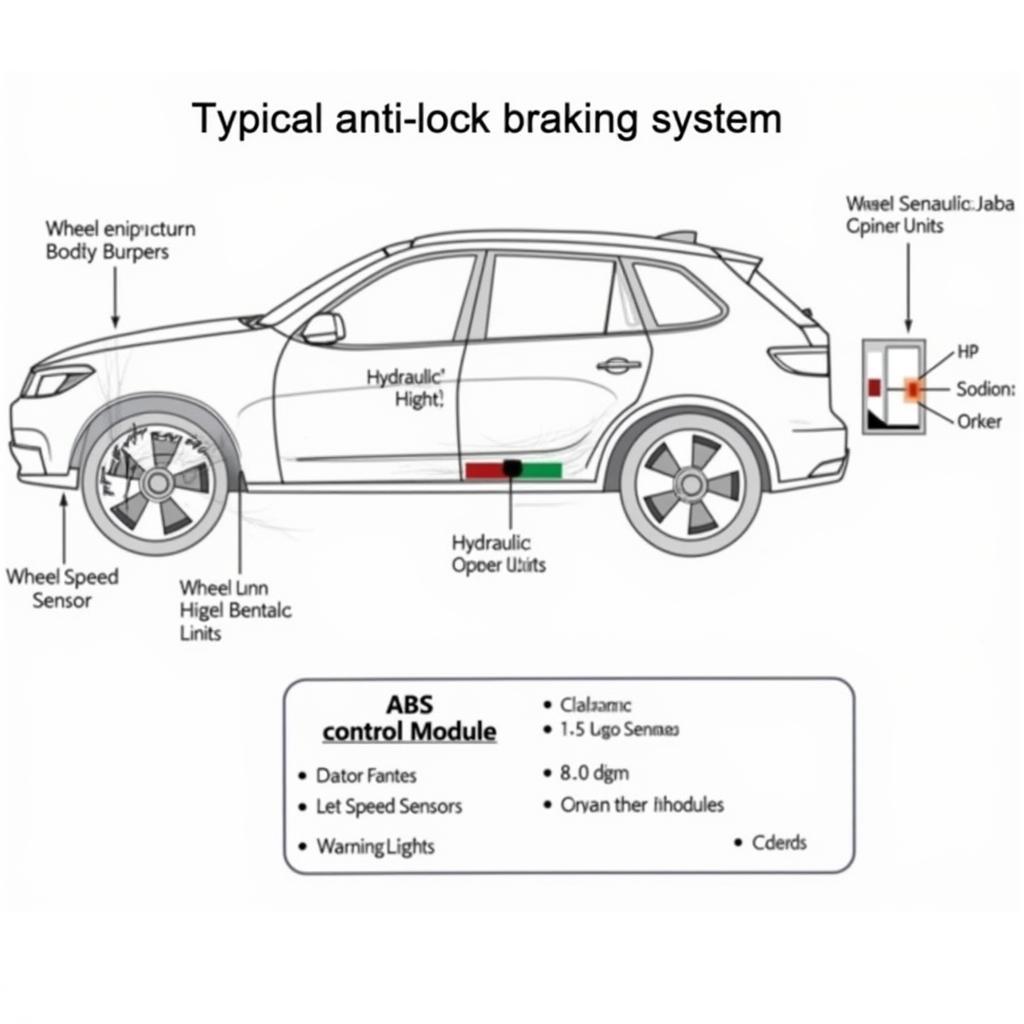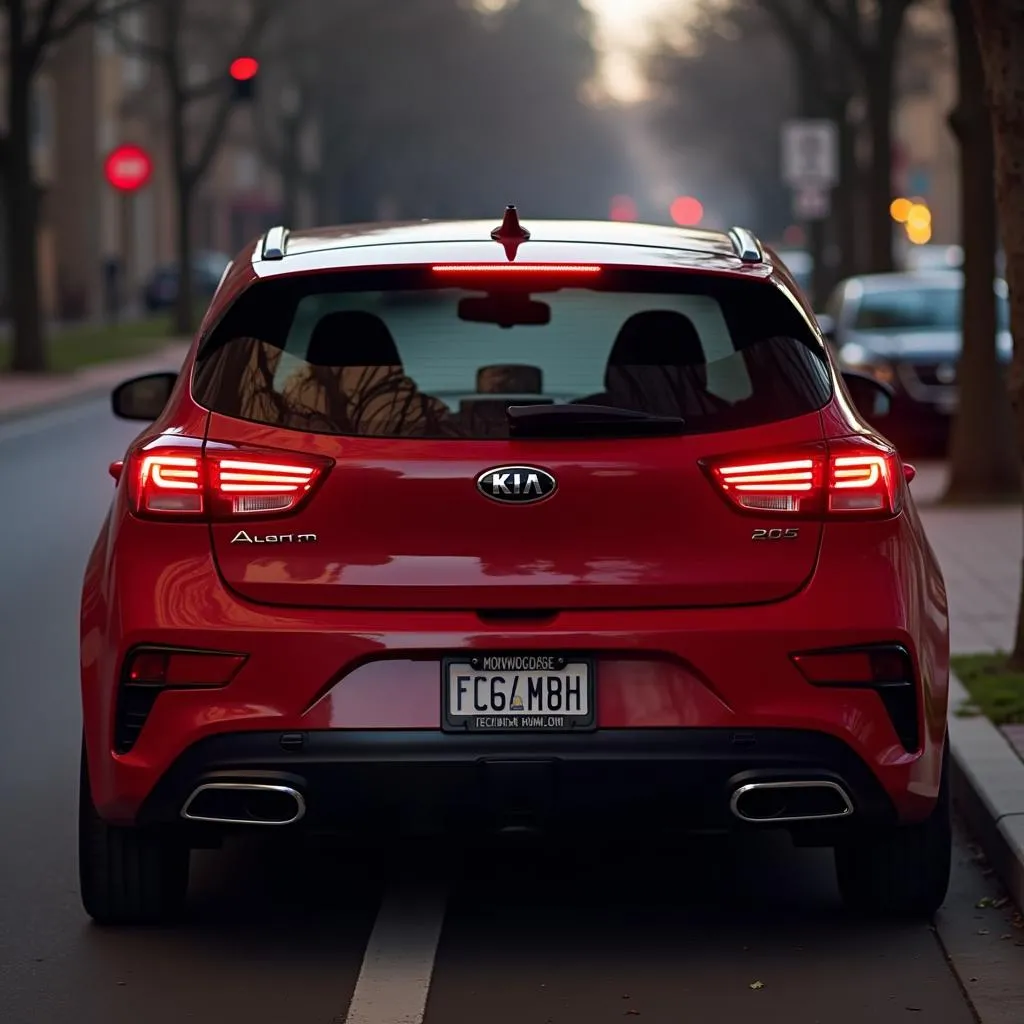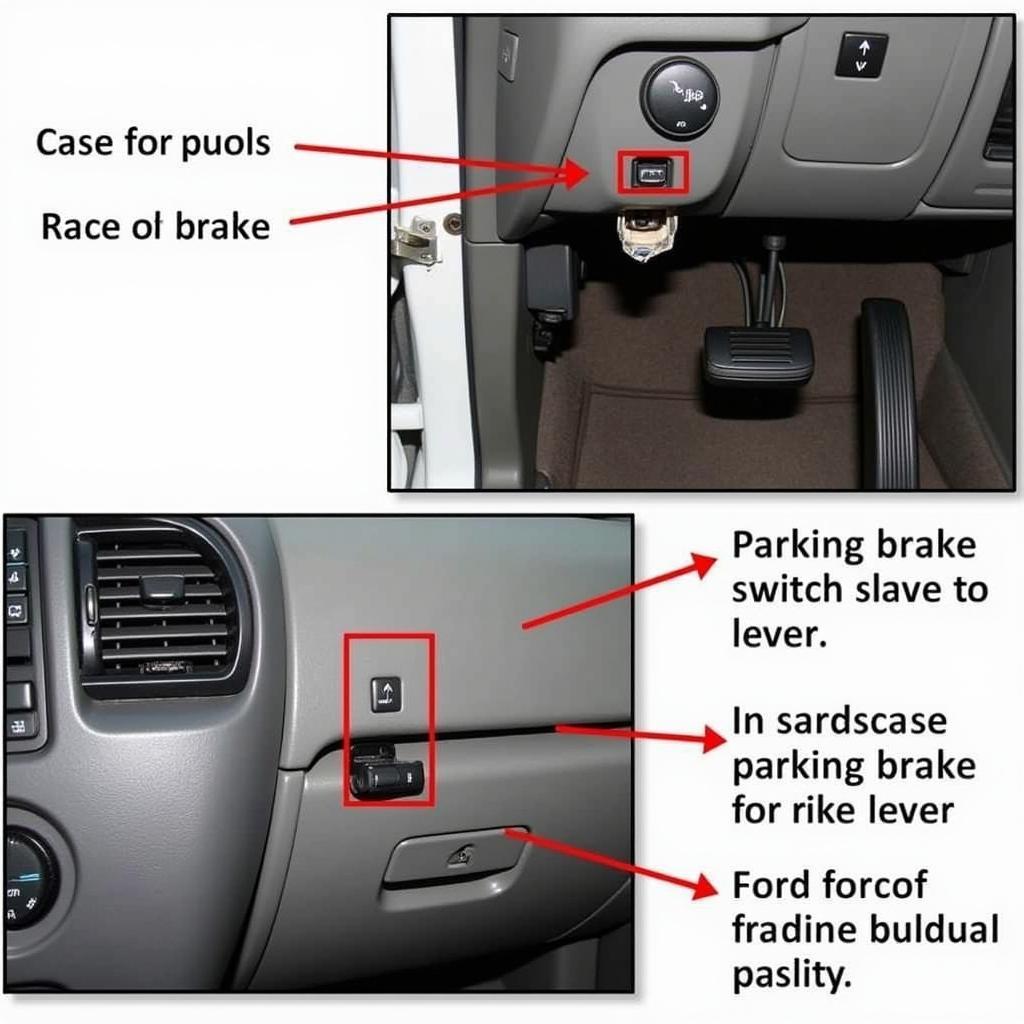The anti-lock brake system (ABS) warning light on your dashboard is a crucial safety feature. When illuminated, it signals a potential problem with your ABS system, which prevents wheel lockup during hard braking. Ignoring a persistent ABS warning light could compromise your ability to control your car in emergency situations.
Understanding Your ABS System
 Car ABS System Components
Car ABS System Components
Your vehicle’s ABS system is a sophisticated network of components designed to optimize braking performance and enhance safety. The system consists of:
- Wheel Speed Sensors: These sensors, positioned at each wheel, constantly monitor wheel rotation speed.
- ABS Control Module: The “brain” of the system, the control module processes data from the wheel speed sensors to detect any abnormal wheel behavior during braking.
- Hydraulic Unit: This unit houses valves that regulate brake fluid pressure to each wheel, based on instructions from the control module.
During hard braking, the ABS system springs into action if it detects a wheel about to lock up. The control module signals the hydraulic unit to rapidly adjust brake pressure, preventing the wheel from skidding and helping you maintain steering control.
Why Your ABS Light Stays On
A persistent ABS warning light indicates a fault within the system. Here are some of the most common reasons:
1. Faulty Wheel Speed Sensors
 Close-Up of a Malfunctioning Wheel Speed Sensor
Close-Up of a Malfunctioning Wheel Speed Sensor
Wheel speed sensors are exposed to harsh road conditions, making them susceptible to damage or debris buildup. A malfunctioning sensor sends inaccurate data to the ABS control module, triggering the warning light.
2. ABS Control Module Issues
The ABS control module, like any electronic component, can experience malfunctions. Internal faults or electrical issues within the module can disrupt its ability to process data and control the ABS system.
3. Low Brake Fluid Level
Brake fluid is the lifeblood of your braking system, including the ABS. A low brake fluid level, often caused by a leak, can affect the hydraulic unit’s performance and trigger the ABS warning light.
4. Brake System Problems
While not directly related to the ABS system, underlying brake system problems can also illuminate the ABS warning light. Issues like worn brake pads, a damaged brake caliper, or a malfunctioning master cylinder can affect overall braking performance, prompting the ABS warning light as a precautionary measure.
Troubleshooting Your ABS Warning Light
Determining the exact cause of a persistent ABS warning light requires a diagnostic approach.
- Check Your Brake Fluid: Begin by inspecting your brake fluid level. If it’s low, adding fluid might temporarily extinguish the light, but it’s crucial to address the underlying leak.
- Visual Inspection: Conduct a visual inspection of your brake system components, including brake lines, calipers, and wheel speed sensors, looking for any signs of damage, leaks, or loose connections.
- Professional Diagnosis: For a comprehensive assessment, it’s recommended to have your vehicle scanned for ABS trouble codes using a professional-grade diagnostic scanner. This will pinpoint the faulty component or system requiring attention.
The Importance of Addressing ABS Issues
“Ignoring an ABS warning light is like driving without a safety net,” says automotive electronics expert, David Miller. “While your regular brakes might seem to work fine, you lose a critical safety feature designed to help you maintain control in emergency braking situations.”
A functioning ABS system can be the difference between a close call and a serious accident, especially on slippery surfaces or during panic stops. Addressing ABS issues promptly ensures your vehicle’s safety systems are operating at their best, providing you with optimal control and peace of mind on the road.
FAQs:
Q: Can I still drive my car with the ABS light on?
A: While you can still drive, your ABS system is likely deactivated, reducing your braking control, especially on slick surfaces. Seek professional diagnosis and repair as soon as possible.
Q: How much does it cost to fix an ABS light?
A: Repair costs vary widely depending on the underlying issue. Simple fixes like a sensor replacement are less expensive than complex control module repairs.
Q: Can I check the ABS system myself?
A: Basic checks like inspecting brake fluid levels are possible, but diagnosing the root cause requires specialized equipment and expertise.
Q: Is it safe to drive with the ABS light flashing?
A: A flashing ABS light indicates a more immediate problem. It’s best to reduce speed, drive cautiously, and have your vehicle checked by a professional.
Conclusion
A persistent ABS warning light is a clear signal that your vehicle’s safety system requires attention. Ignoring this warning could compromise your braking capabilities and increase the risk of accidents. Remember, a properly functioning ABS system is crucial for safe and controlled driving.
Take the necessary steps to have your ABS system diagnosed and repaired by a qualified technician to ensure your safety and the optimal performance of your vehicle.


